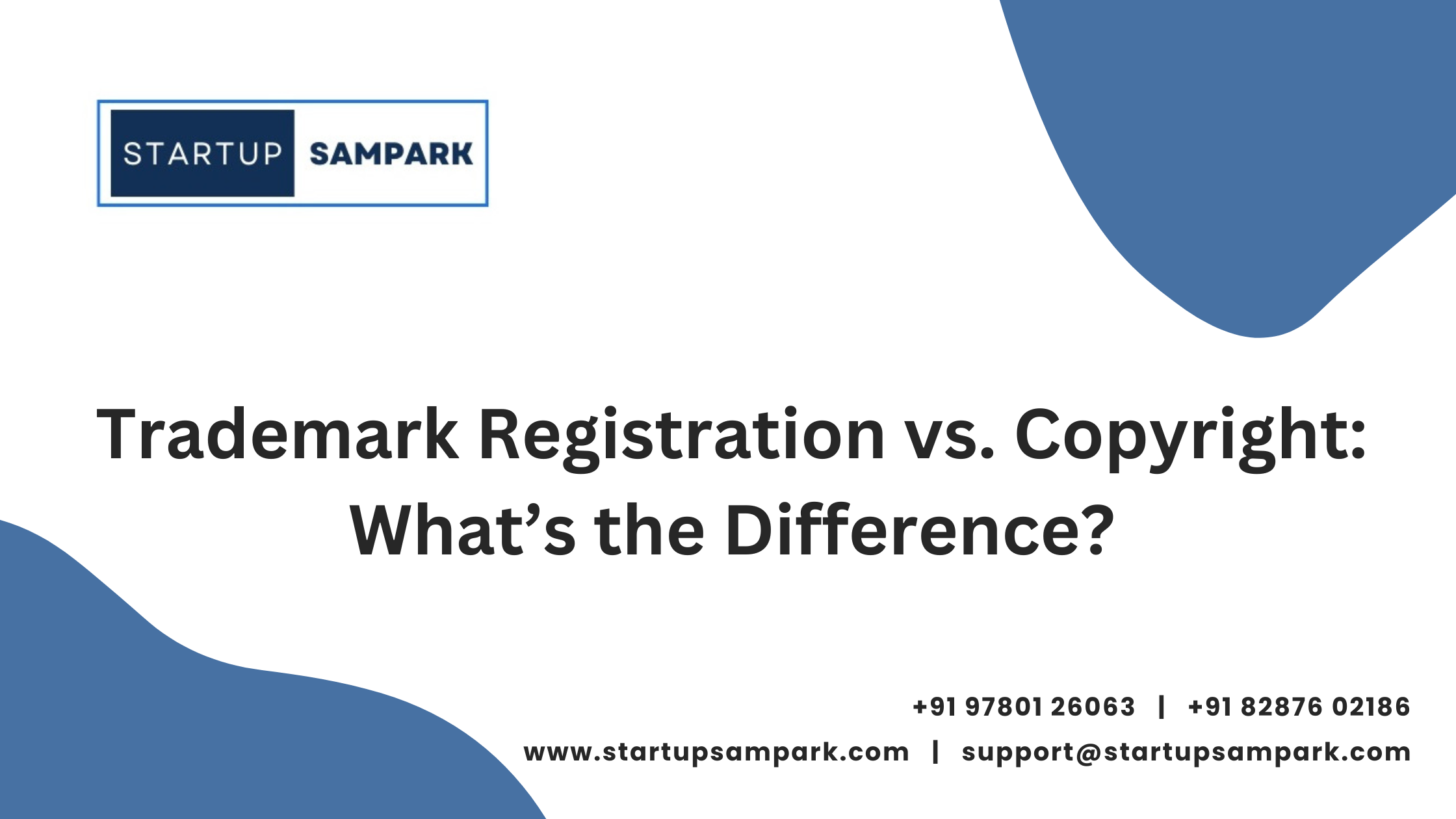Trademark Registration vs. Copyright: What’s the Difference?
1. Definition and Purpose
Trademark and copyright serve different purposes in protecting intellectual property. A trademark is a sign, symbol, word, or logo used to identify and distinguish goods or services of one business from those of others. It provides legal protection for brand identity, ensuring no other entity can use a similar mark in a way that confuses consumers. On the other hand, copyright protects original creative works, such as literature, music, art, films, and software. It grants the creator exclusive rights to reproduce, distribute, and display the work. Essentially, trademarks protect brand identity, while copyrights protect creative expression.
2. Scope of Protection
A trademark in India grants protection to any distinctive sign associated with a company’s goods or services. This includes brand names, logos, slogans, and even the packaging design. Trademark protection is class-specific, meaning it applies only within the categories under which the business operates. Copyright, however, covers original works of authorship. It offers broader protection, extending to literary, artistic, and musical creations regardless of the medium or the commercial category. For example, a copyright protects the content of a book, while a trademark protects the brand name under which the book is sold.
-
 Trademark Registration₹7,450.00
Trademark Registration₹7,450.00
3. Duration of Protection
Trademark and copyright differ in terms of how long the protection lasts. A trademark in India is valid for ten years from the date of registration and can be renewed indefinitely in ten-year increments, provided the trademark is actively used in business. Continuous renewal ensures that the brand remains protected as long as it is relevant. Copyright, on the other hand, lasts for the lifetime of the author plus 60 years after their death in India. This long duration helps to preserve the creator’s rights and ensures that their work is protected for generations after their passing.
4. Registration Process
The process of registering a trademark in India involves submitting an application with the Trade Marks Registry, selecting the relevant class of goods or services, and undergoing an examination for potential conflicts. If no objections or oppositions arise, the trademark is registered, providing exclusive rights to its use. Copyright, however, is automatically granted to a creator once their original work is produced, and registration is not mandatory. That said, copyright registration with the Copyright Office in India provides public proof of ownership and can be helpful in legal disputes.
5. Legal Remedies for Infringement
In cases of trademark infringement, the trademark owner can initiate legal proceedings to stop the infringing party and claim damages. Trademark infringement usually occurs when a competitor uses a similar mark that causes confusion among consumers regarding the origin of goods or services. For copyright infringement, the owner can take legal action to prevent unauthorized use, reproduction, or distribution of their creative work. The court can order the infringing party to stop using the work, destroy unauthorized copies, and pay damages or royalties.
6. Transfer and Licensing
Both trademarks and copyrights can be licensed or transferred, but there are differences in how they are used commercially. A trademark can be licensed to another business, allowing them to use the mark under specified terms. Trademarks are also commonly franchised, enabling other entities to operate under a recognized brand name. Copyrights can be licensed to allow others to use, reproduce, or modify the work, often in exchange for royalties. Copyright ownership can also be assigned, where the original creator transfers all rights to another party. Both serve as valuable business assets that can generate revenue through strategic partnerships and licensing.
trademark, india
-
 Trademark Registration₹7,450.00
Trademark Registration₹7,450.00















Post Comment